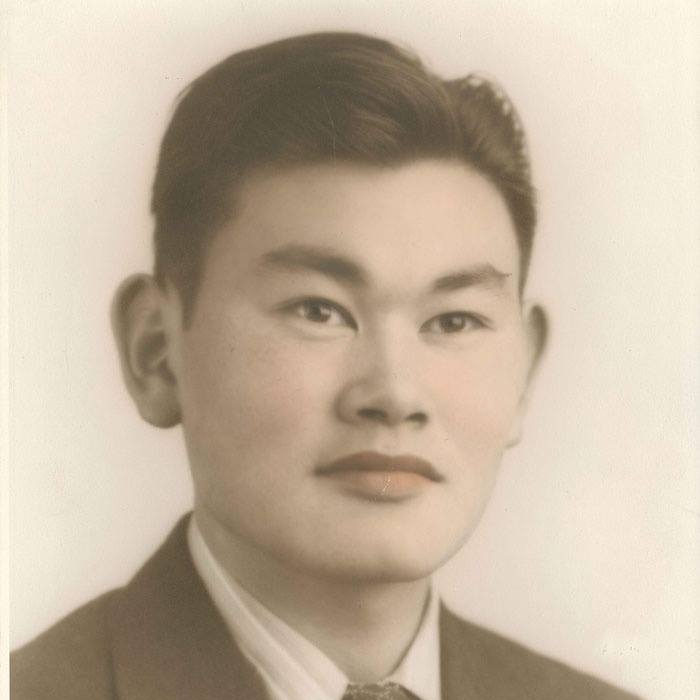In June 1942, Japan bombed Pearl Harbour. This sparked a listless American war effort into action, with the USA plunging into the maelstrom of World War II. As part of America’s response, President Franklin D. Roosevelt ordered the mass internment of anyone of Japanese heritage, including those who were American citizens. From the US government’s perspective, the risk that the sympathies of such ‘aliens and non-aliens’ would lie more strongly with its enemies than with America itself justified the violation of their constitutional rights. Forcing them into relocation camps was a cost of war that they simply had to bear.
For some citizens, most famously Fred Korematsu, this was not a just – or constitutional – conclusion for the government to reach. Korematsu, after going to extreme lengths to avoid internment (including plastic surgery), was found and prosecuted for disobeying the executive order, and so challenged his conviction in the courts. He argued that it violated the US Constitution’s ‘Due Process’ clause, which asserted that no one shall be deprived of ‘life, liberty or property, without due process of law’.
Korematsu’s conviction was a staging post on route to one of the US Supreme Court’s most reviled decisions, Korematsu v United States. There, a majority of the justices voted to uphold the conviction, finding that the mass internment of American citizens and residents, without trial and because of their heritage alone, was constitutional. In his opinion for the Court, Justice Black wrote that ‘we cannot reject as unfounded the judgment…that there were disloyal members of that population [those of Japanese heritage], whose number and strength could not be precisely and quickly ascertained’. Incongruously, Justice Black also held that this treatment was not ‘because of hostility to him or his race’ but ‘because we are at war with the Japanese Empire’ a state of affairs that apparently ‘demanded that all citizens of Japanese ancestry be segregated…’.
As Black’s dissenting brethren were at pains to point out, Roosevelt’s policy fell ‘into the ugly abyss of racism’. It was an order that condemned thousands of patriotic American citizens to camps because of where they came from, justified only the bigoted assumption that they would be unable to set aside their heritage in favour of their nation. Had the policy been one enacted in peacetime, as Justice Jackson wrote in his dissent, ‘this Court would refuse to enforce it’. Indeed, the need for deference was the dominant argument, with Justice Frankfurter writing that the internment was an ‘exercise of the war power…for the safeguarding of national life…’
Korematsu is a painful example of what happens when courts surrender their powers because of political circumstance. There is little dispute that at times of emergency, the powers of government should be enhanced, with exceptional circumstances justifying exceptional acts. While this may affect the court’s balancing of the issues, it does not mean that the courts should suspend their critical faculties – the reasons for the constitutional harm must still be vigorously assessed, the ostensible benefits set against against the very real harms. As Chief Justice John Roberts noted in a recent decision which formally overturned Korematsu, Trump v Hawaii, this was something that the Supreme Court failed to do then, but they would not fail to do again. In striking down Trump’s travel ban, Roberts’ Supreme Court was not going to disregard the obvious prejudice that motivated the policy.
What is equally important, however, is that the courts do not over-learn the lessons of Korematsu, being too quick to intervene when harm is shown. It is self-evident that at times of emergency, governments may take action which, with hindsight, seems disproportionate or ill-advised. A flawed decision, in and of itself , does not necessarily mean an unlawful decision. This was the logic of the decision of Justice Lewis in the UK’s High Court this week, when he refused the claimants permission to proceed with their judicial review of the lockdown regulations in Dolan & Ors v Secretary of State for Health.
If this judgment had been given after a full hearing, it would have been the right one. As Justice Lewis held, the court is ‘not responsible for making political, social, or economic choices’ and that it ‘is not responsible for determining how best to respond to the risks to public health posed by…a novel coronavirus’. The difficulty in this decision comes from the fact that, in permission hearings, claimants have a lower hurdle to surmount – they merely have to show that their case is ‘arguable’.
Perhaps the claimants, and those who have helped crowdfund the case so far, should be grateful. While the decision to refuse permission is curious in places – most particularly in the judge’s assertion that the matters raised are ‘academic’, and his confidence that the regulations in question allow the government to take action in regards to the entire nation, rather than specific individuals or groups- the nature and merits of the case mean that even after full argument, the court will, in all probability, side with the government.
Dolan’s claim that the regulations cannot apply to the whole population lays siege to the entire edifice of the government’s coronavirus response, and if it was successful, would bring much of it tumbling down. Given such a context, it seems necessary that the court would prefer the more expansive interpretation of the powers in the regulations- indeed, the conclusion would otherwise be that the government could only respond to a pandemic as though it was a locally discrete issue, rather than an emergency threatening the health of the nation.
In a similarly expansive fashion, Dolan also sought to argue that policy was irrational. With most of those under 60 are seemingly unaffected, by and large, from the more debilitating elements of covid-19, he argued that it was unreasonable to expect them to pause their lives. Other, less stringent means of curtailing the virus should have been preferred. Such an argument ignores the fact that much is still unknown about the virus (with this week alone revealing that even those with mild symptoms are at risk from neurological disorders), and that the government must be alive to other concerns, such as the risk of the healthcare system being overwhelmed. The argument has the air of someone astonished that people all have their umbrellas up as they are all dry, and so deciding that umbrellas are an unnecessary inconvenience, ignoring the fact they are all in the midst of a thunderstorm.
Alongside this, to show that a decision is irrational, claimants have an exceptionally high bar to clear. They need to show that the policy is such that no reasonable decision-maker, considering all the issues, could have come to it. In this case, for a court to rule that the entirety of the government’s response to the pandemic, based on a complex interplay of social, economic and political factors, was unlawful on the grounds of irrationality, would be an astonishing act of hubris. Even those who welcome a more engaged judicial approach to political issues, including myself, should be wary of suggesting that courts should be willing to adjudicate on issues of such breadth and scope. The judiciary are not equipped to meaningfully consider such issues on such a scale, being better suited to considering discrete policies where cause and effect can be reasonably isolated and evaluated.
In a similar vein, Dolan’s case was on a stronger footing in its more focused challenges, like that against the absolute prohibition on religious worship, which was given permission to proceed. Such challenges recognise that while the government’s overall response may be coherent (even if belatedly introduced), it is in the detail where its policies have left something to be desired, such as in its failures to adequately review detention in prisons and immigration removal centres, or to protect care homes- regardless of where the prime minister now tries to pin the blame.
Even in these challenges, however, Dolan’s arguments once again focused on the lockdown itself, rather than on the peripheral and discrete harms done. On the issue of education, not only were the schools never ordered to close, but education itself was never suspended. The right to education in the ECHR is a pragmatic one, that does not require education of any particular form, but rather ‘to a minimum standard’. Given this, and that the government sought to ensure that vulnerable children (and those of key workers) were still able to attend, the education argument looks particularly optimistic. Instead, the challenges like those of the Good Law Project are more coherent, focusing on the government’s failure to recognise that certain groups were more likely to be harmed by such a policy, like those households unable to afford electronic devices for all their children. The issue is not with the policy itself, but the flawed method of execution.
Both Korematsu and Dolan are rooted in deference to the government. The two differ in that Korematsu the US Supreme Court suspended its critical faculties, refusing to recognise that prejudice, rather than logic, was motivating the government’s actions. In contrast, in Dolan, there is clear logic behind the government’s actions, and while it has led to conclusions that some may legitimately dispute, it is not a dispute that judges are equipped to resolve. Even if the High Court erred in refusing permission to proceed, those bringing the claim may want to consider that this is a dispute where the remedy is found in Westminster or at the ballot-box – not the Royal Courts of Justice.







